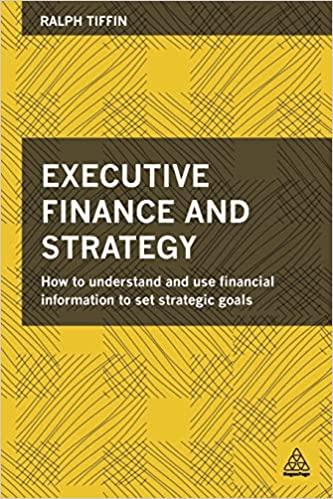Answered step by step
Verified Expert Solution
Question
1 Approved Answer
Problem 1. Important relationship between present value and time period. Question A. Find the present value of $100 if the discount rate is 6% and
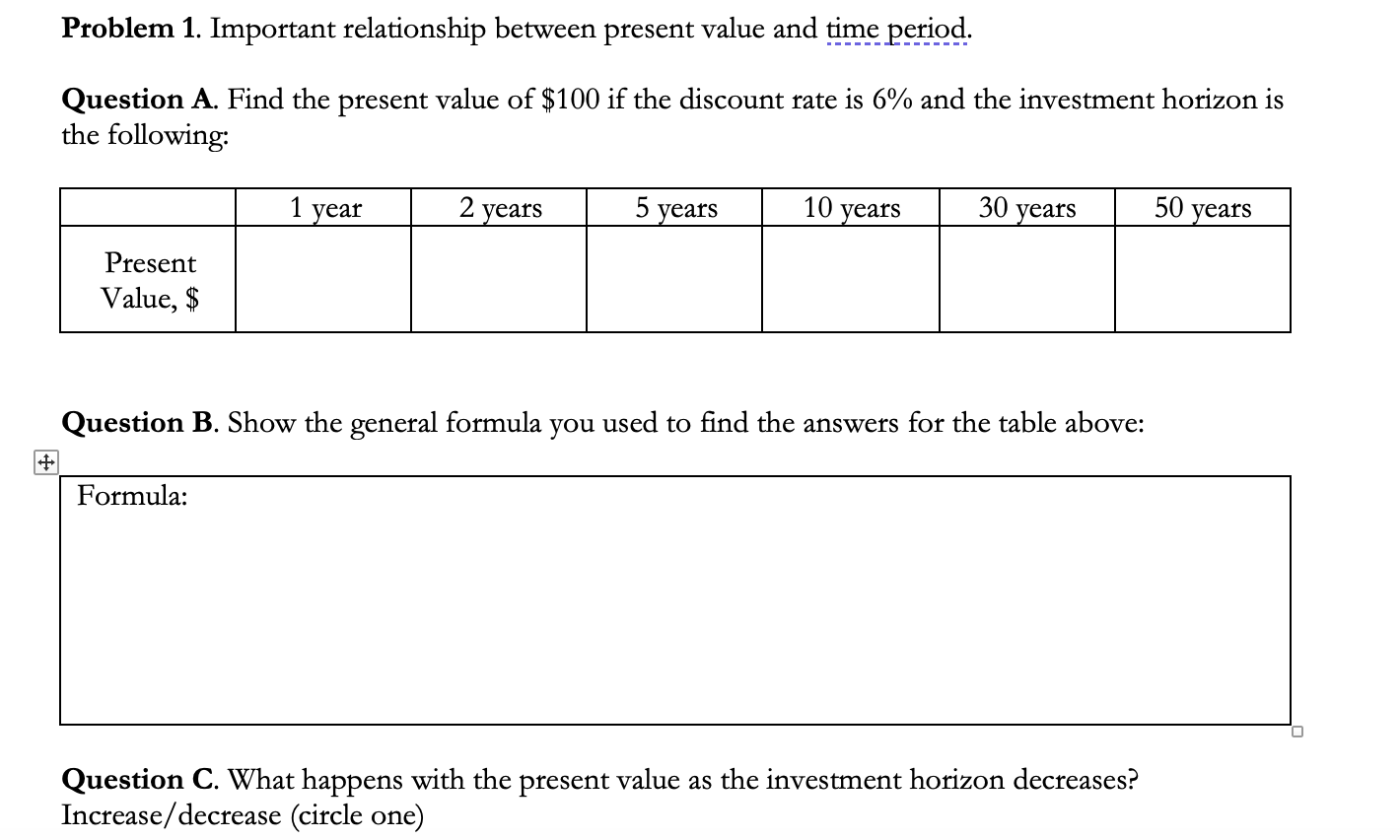
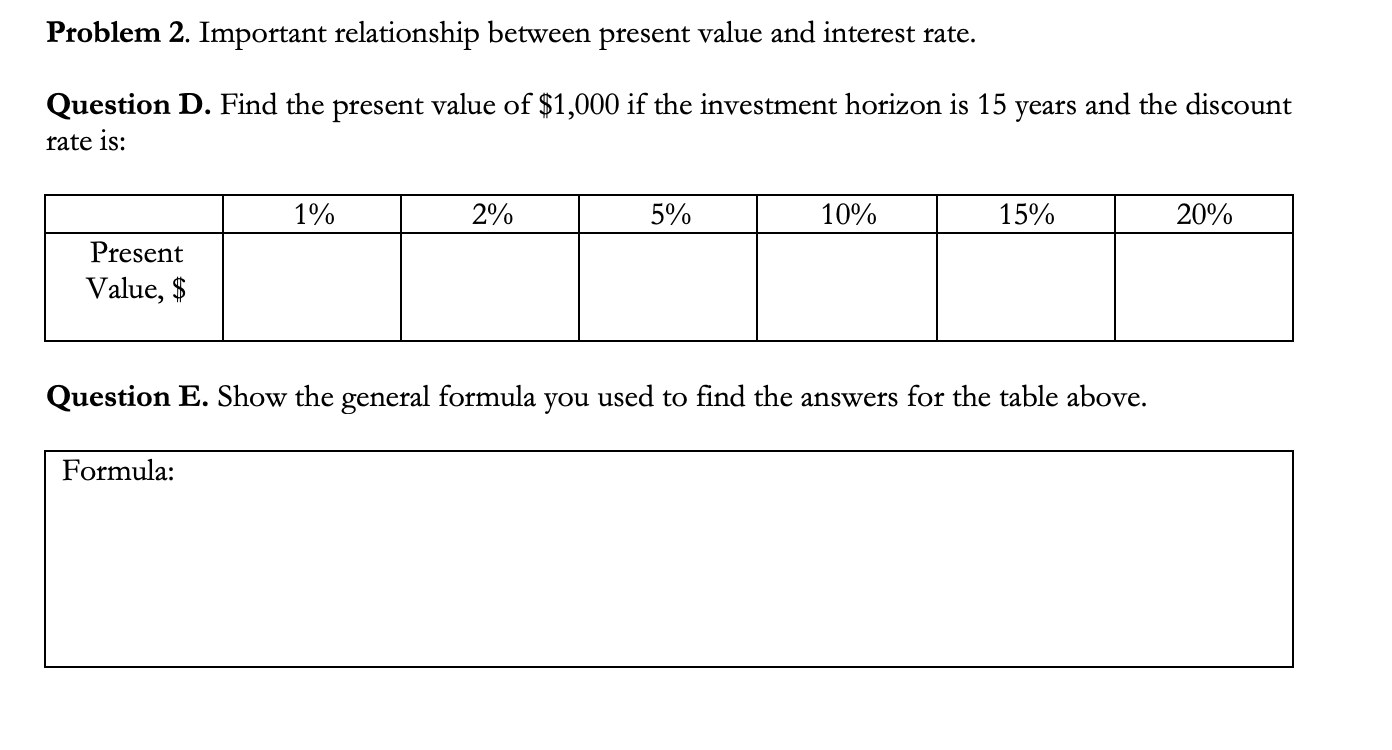
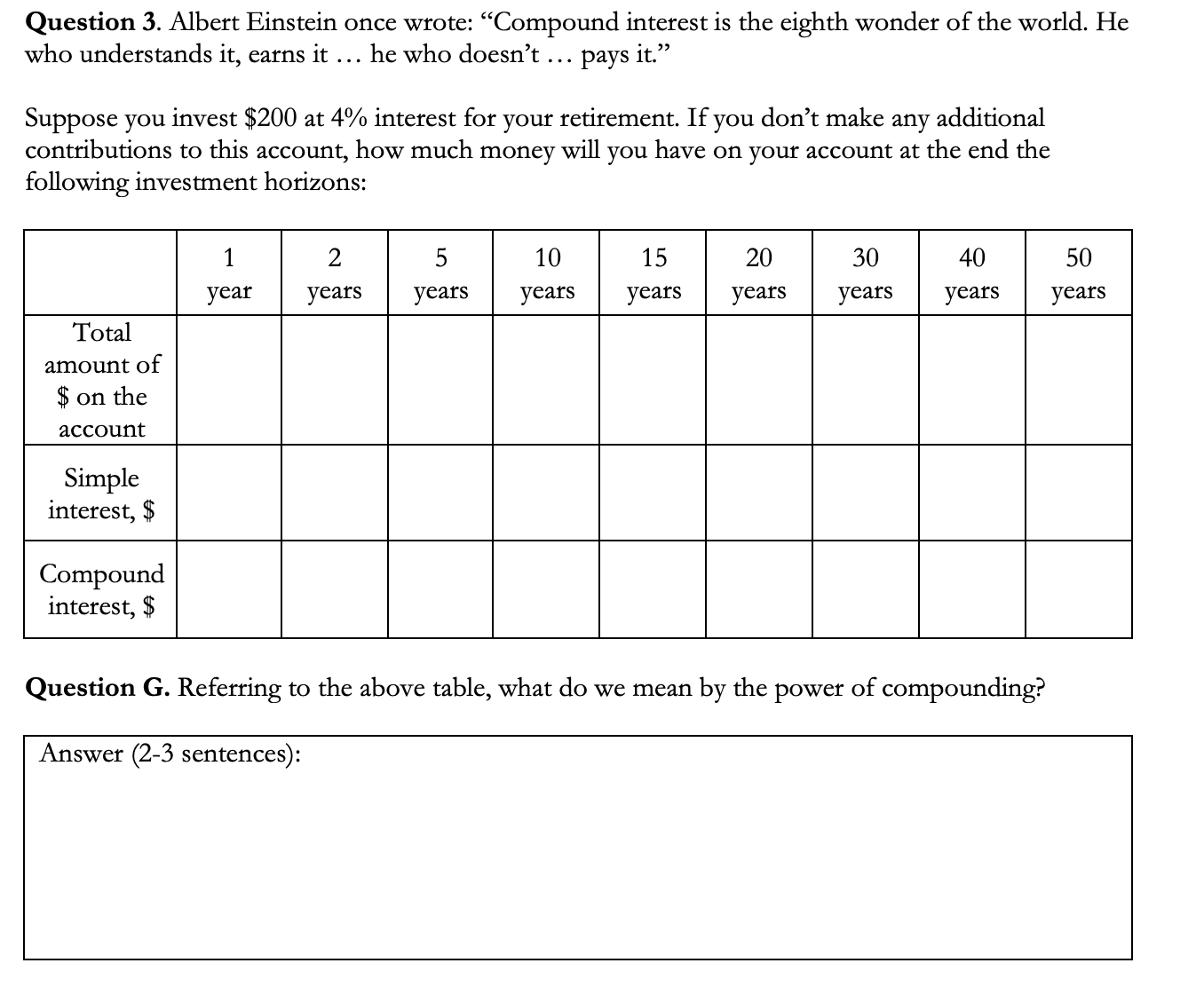

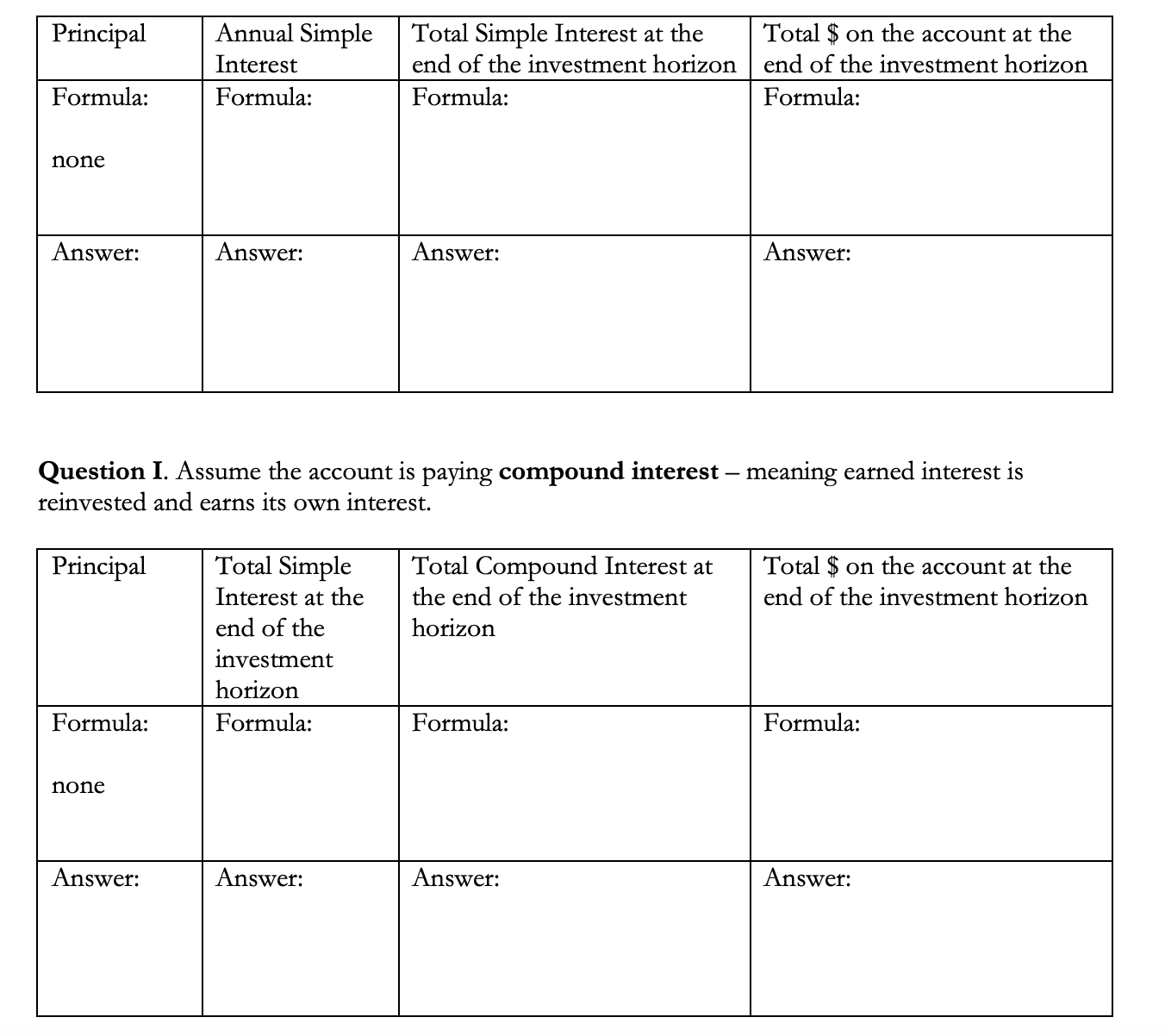


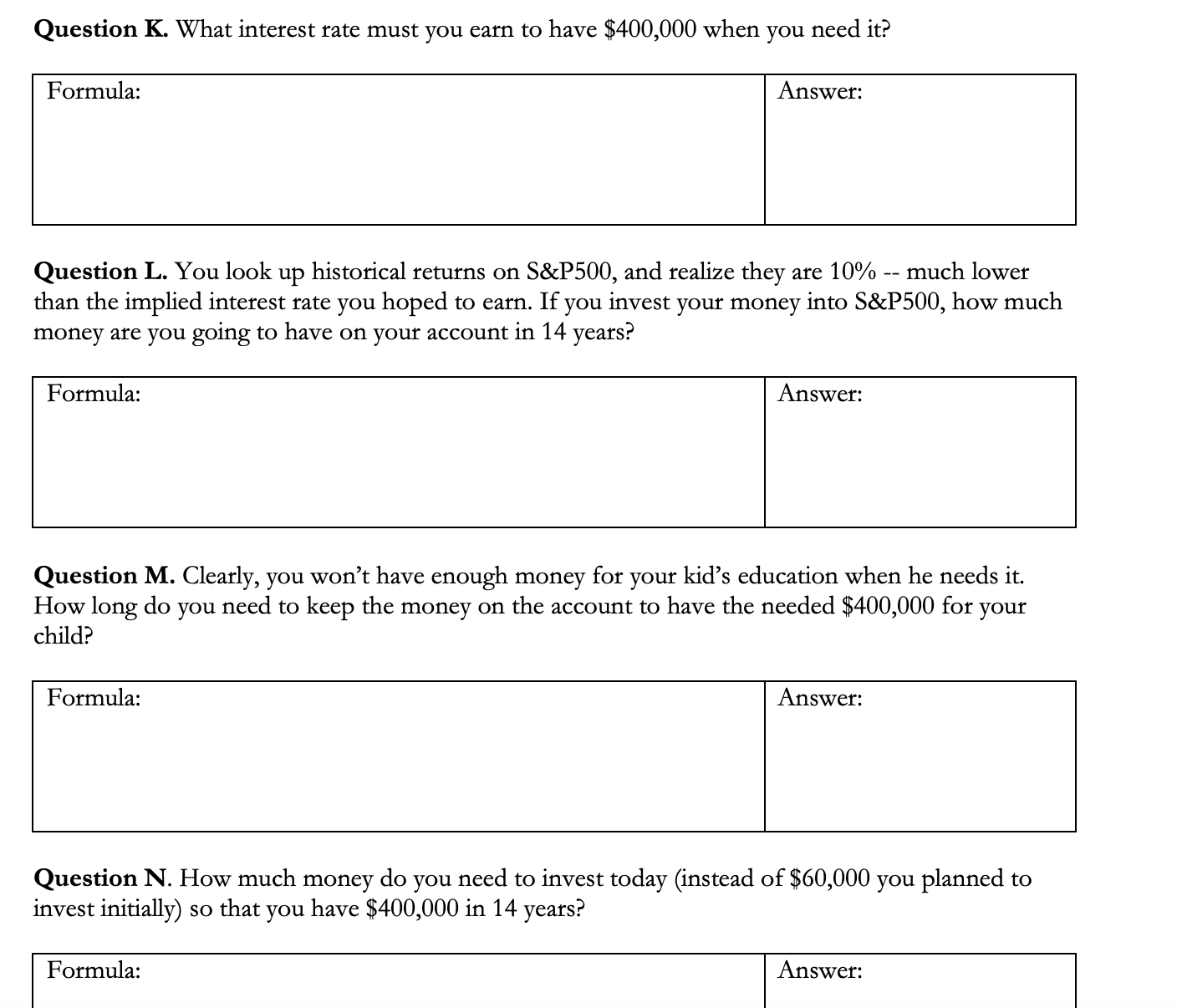 Problem 1. Important relationship between present value and time period. Question A. Find the present value of $100 if the discount rate is 6% and the investment horizon is the following: Question B. Show the general formula you used to find the answers for the table above: Question C. What happens with the present value as the investment horizon decreases? Increase/decrease (circle one) Problem 2. Important relationship between present value and interest rate. Question D. Find the present value of $1,000 if the investment horizon is 15 years and the discount rate is: Question E. Show the general formula you used to find the answers for the table above. Question 3. Albert Einstein once wrote: "Compound interest is the eighth wonder of the world. He who understands it, earns it ... he who doesn't ... pays it." Suppose you invest $200 at 4% interest for your retirement. If you don't make any additional contributions to this account, how much money will you have on your account at the end the following investment horizons: Question G. Referring to the above table, what do we mean by the power of compounding? Problem 4. Suppose you deposit $700 into an account paying 10% annual interest. You decide to keep your money in that account for 15 years. Fill out the following tables for two scenarios: Question H. Assume the account is paying simple interest - meaning earned interest is not reinvested. Question I. Assume the account is paying compound interest - meaning earned interest is reinvested and earns its own interest. Question J. What is the effect of the interest compounding? That is, how much more money did you earn with compound interest? Question 5. Suppose you have a 4-year old son and you want to provide $400,000 in 14 years towards his college education. You currently have $60,000 to invest. Question K. What interest rate must you earn to have $400,000 when you need it? Question L. You look up historical returns on S\&P500, and realize they are 10\% -- much lower than the implied interest rate you hoped to earn. If you invest your money into S\&P500, how much money are you going to have on your account in 14 years? Question M. Clearly, you won't have enough money for your kid's education when he needs it. How long do you need to keep the money on the account to have the needed $400,000 for your child? Question N. How much money do you need to invest today (instead of $60,000 you planned to invest initially) so that you have $400,000 in 14 years
Problem 1. Important relationship between present value and time period. Question A. Find the present value of $100 if the discount rate is 6% and the investment horizon is the following: Question B. Show the general formula you used to find the answers for the table above: Question C. What happens with the present value as the investment horizon decreases? Increase/decrease (circle one) Problem 2. Important relationship between present value and interest rate. Question D. Find the present value of $1,000 if the investment horizon is 15 years and the discount rate is: Question E. Show the general formula you used to find the answers for the table above. Question 3. Albert Einstein once wrote: "Compound interest is the eighth wonder of the world. He who understands it, earns it ... he who doesn't ... pays it." Suppose you invest $200 at 4% interest for your retirement. If you don't make any additional contributions to this account, how much money will you have on your account at the end the following investment horizons: Question G. Referring to the above table, what do we mean by the power of compounding? Problem 4. Suppose you deposit $700 into an account paying 10% annual interest. You decide to keep your money in that account for 15 years. Fill out the following tables for two scenarios: Question H. Assume the account is paying simple interest - meaning earned interest is not reinvested. Question I. Assume the account is paying compound interest - meaning earned interest is reinvested and earns its own interest. Question J. What is the effect of the interest compounding? That is, how much more money did you earn with compound interest? Question 5. Suppose you have a 4-year old son and you want to provide $400,000 in 14 years towards his college education. You currently have $60,000 to invest. Question K. What interest rate must you earn to have $400,000 when you need it? Question L. You look up historical returns on S\&P500, and realize they are 10\% -- much lower than the implied interest rate you hoped to earn. If you invest your money into S\&P500, how much money are you going to have on your account in 14 years? Question M. Clearly, you won't have enough money for your kid's education when he needs it. How long do you need to keep the money on the account to have the needed $400,000 for your child? Question N. How much money do you need to invest today (instead of $60,000 you planned to invest initially) so that you have $400,000 in 14 years Step by Step Solution
There are 3 Steps involved in it
Step: 1

Get Instant Access to Expert-Tailored Solutions
See step-by-step solutions with expert insights and AI powered tools for academic success
Step: 2

Step: 3

Ace Your Homework with AI
Get the answers you need in no time with our AI-driven, step-by-step assistance
Get Started


